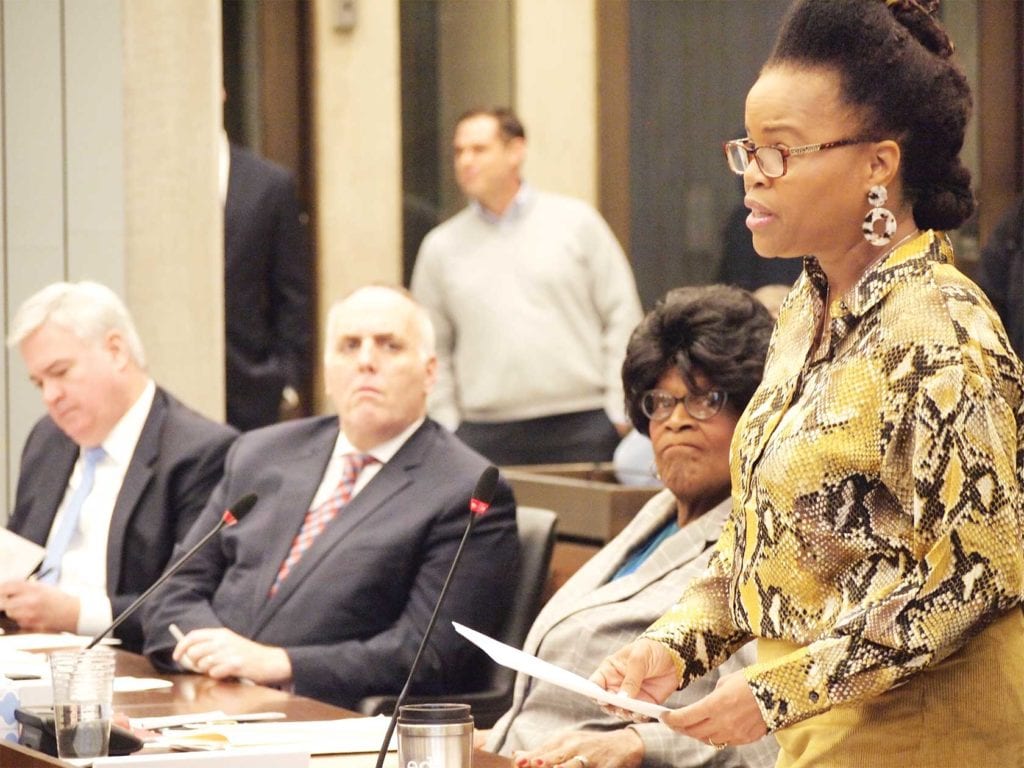
The Boston City Council last week passed legislation aimed at increasing the share of cannabis businesses owned by people from communities that were impacted by drug prosecution.
The Equitable Regulation of the Cannabis Industry ordinance, sponsored by District 7 Councilor Kim Janey, calls for so-called equity licenses — those held by people affected by the drug war — to be approved on a one-to-one basis with licenses for other owners. The ordinance calls for the creation of a Boston Cannabis Board, which will oversee the process and apply greater scrutiny to firms applying for licenses, making sure they don’t misrepresent ownership.
“We need to make sure that communities that have been locked up are not locked out of the opportunity to build wealth and break the cycle of generational poverty,” Janey said during last week’s council meeting. “Given the massively disproportionate arrest rates, and the staggering wealth gap in Boston, we must ensure equity at the city level.”
Janey negotiated the details of the ordinance with Mayor Martin Walsh prior to last Wednesday’s council vote. For the Cannabis Board called for in Janey’s ordinance, Walsh would appoint members who would vet cannabis business applications based on diversity and inclusion as well as community support — which would account for 20 percent of a proposal’s score. Applications would also be judged on parking and security plans. Under the current law, Walsh administration officials decide which proposals will go forward.
Janey’s ordinance also calls for the establishment of a fund that will help assist equity applicants with the steep costs of opening a marijuana business, which include securing a location and often paying rent and utilities during the application process, which can take as long as eight months. Janey’s proposal calls for locally-owned firms with diverse ownership to be given priority for equity funds.
The ordinance will also create a public registry of applicants so that Bostonians can see how and where the new businesses are opening.
So far, no cannabis shops have opened in Boston, although 14 have won approval from the city.
The council voted 12 to 1 to pass Janey’s ordinance, with Althea Garrison the sole dissenting vote.
Janey said she will stay focused on ensuring there is equity in the Boston cannabis industry. She plans to hold hearings next year to make sure the ordinance is being implemented and achieving its desired outcome of bringing equity to the cannabis business.
“While this ordinance groundbreaking and game changing, it is just one step that we must take to ensure equity,” she said. “I look forward to working with my colleagues on the council and the mayor on additional reforms that support equity in this industry. It’s not enough to have half of the licenses if the smaller, local, diverse companies we are trying to help are still locked out of the opportunity to start a business in high-revenue-generating areas, like Fenway, Copley, Downtown and the Seaport.”







